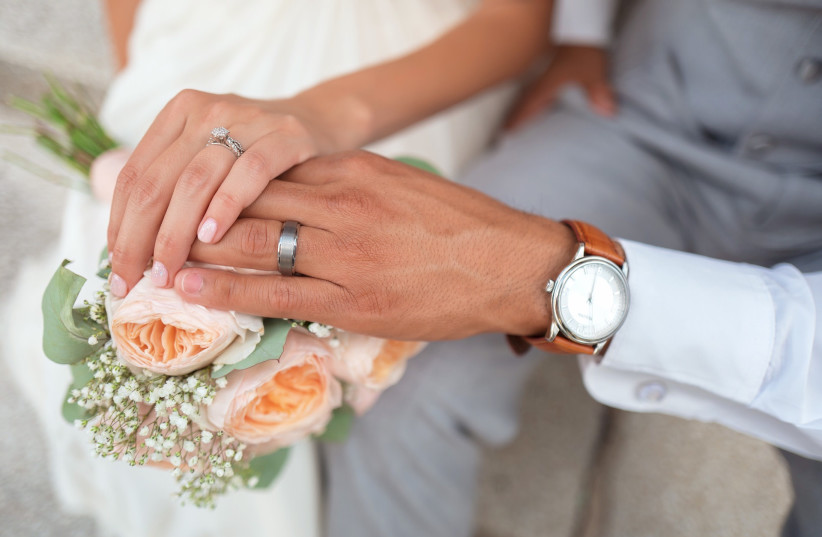The High Court of Justice rejected on Tuesday the state’s appeal on the Utah marriages issue, meaning that the Population Authority is obliged to properly register every couple who got married in this manner.
This decision makes it a de-facto recognition of civil marriages of Israelis performed in Utah by video. According to the court, the Population Authority and Interior Ministry must register any couple who got married in a civil Utah marriage as being married.
The state’s appeal follows a petition filed by the Hiddush – for Religious Freedom and Equality organization, together with eight couples who registered for marriage and got married via Zoom in front of the Utah County marriage authorities.
“The ruling [concurs with] Hiddush’s position that the consistent rule of the Supreme Court since the 1960s, which ordered the registration of marriages in any case where the state tried to oppose the registration of civil marriages of Israelis abroad, must be applied to Utah marriages,” a press release on behalf of the organization said.
“The meaning of the decision is that the Population Authority will continue to be obliged to register couples who married online abroad, even though they are physically present in Israel at the time of the ceremony.”
Israeli marriage law and the Utah issue
The marriages are conducted in visual consultation with a marriage officiant in the state of Utah and have already enabled thousands of couples from all over the world, including already about 600 Israeli ones, to get married from their place of residence without having to physically come to Utah.
In Israel, marriage is only allowed in accordance with religious law. According to estimates, about 700,000 people cannot marry in Israel, among them about half a million immigrants who are considered to have no religion, same-sex couples, Reform and Conservative converts, and couples who are invalid according to Halacha.
“We welcome the ruling of the Supreme Court, which opens another channel for marriage for the citizens and residents of Israel,” said Rabbi Uri Regev, CEO of Hiddush.
“The State of Israel is the only Western democracy in the world that denies its citizens the freedom of marriage due to the demand of the religious parties,” he pointed out. “It is important to understand that, on the one hand, the ruling is not a legal innovation, but a continuation of a consistent rule that the court has been following for 60 years. But on the other hand, it is about opening wide gates for Israeli couples who want to exercise their right to marry, either because the State of Israel prevents them from marrying or because it denies them the possibility of marrying in an egalitarian ceremony that suits their worldview and lifestyles.”
Hila Far, chair of The Aguda – The Association for LGBTQ Equality in Israel, said that while the state sends couples overseas to formalize marriages and fights to stop them from being recognized, the High Court of Justice has once again proven the importance of an independent judiciary to protect citizens’ rights.
However, she said that while the ruling is important, “it isn’t a substitute for LGBT marriage in Israel, which is still prohibited by law.”
In June 2021, the Population and Immigration Authority of the Interior Ministry formally informed the Lod District Court that it would not register civil marriages performed in an online ceremony in Utah.
The authority appended the couple in question to the letter as part of its response to the court, in which it said that the couple had not had a representative in Utah when the wedding was performed.
It also said that “the majority of the components of the wedding... relate to actions conducted in Israel,” and that “most of the affiliations of this marriage ceremony are not to the state where the certificate was issued.”
The authority said the wedding was essentially performed in Israel and that since there is no provision for civil marriage in Israel, the marriage could not be registered with the Population and Immigration Authority.
Yonah Jeremy Bob and Jerusalem Post Staff contributed to this report.

